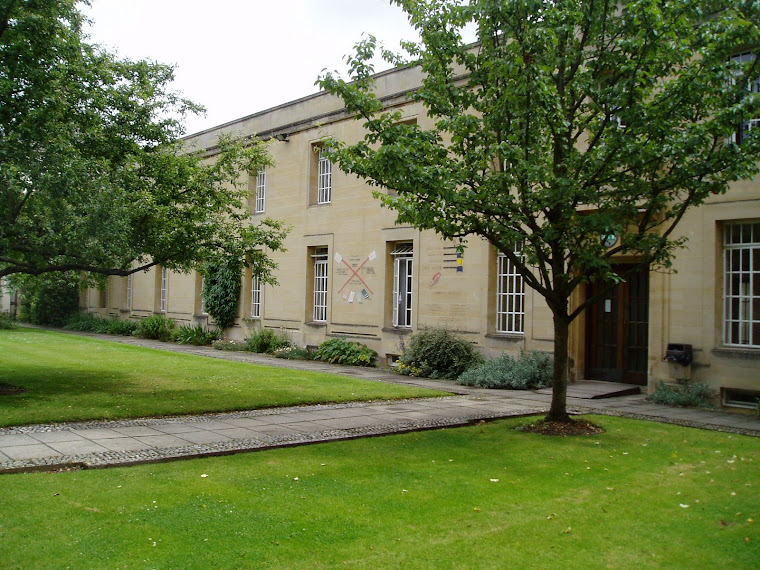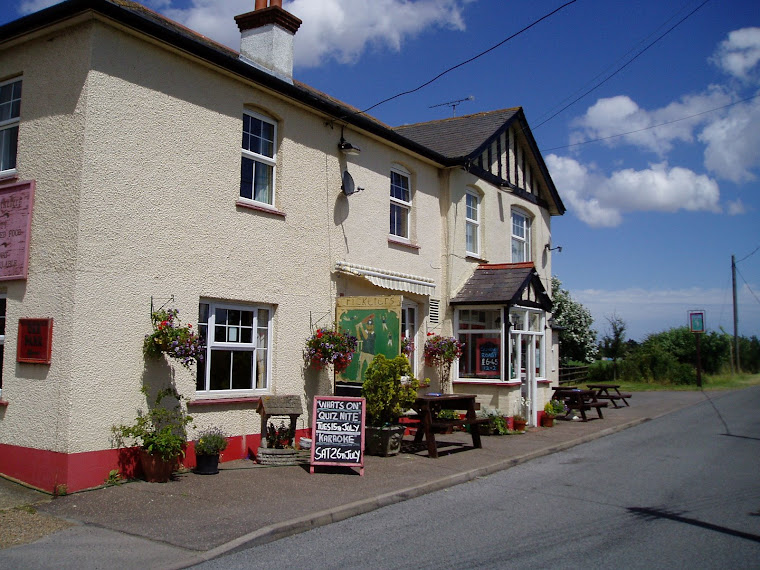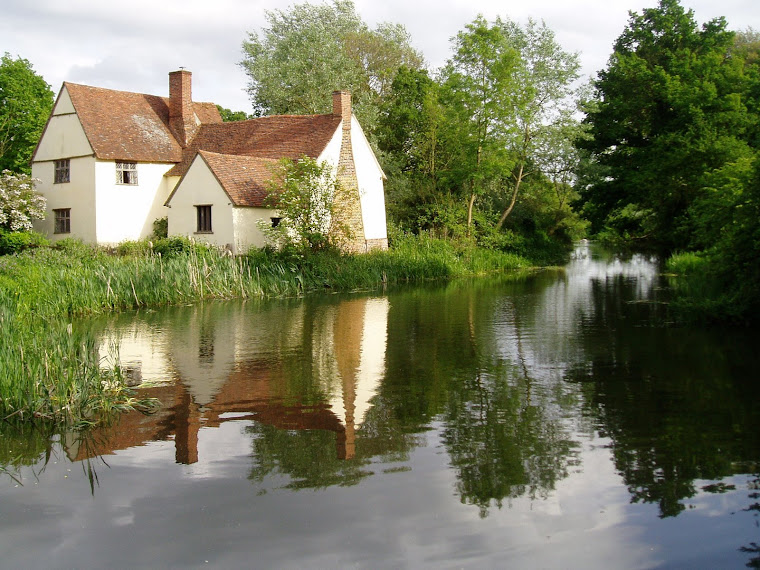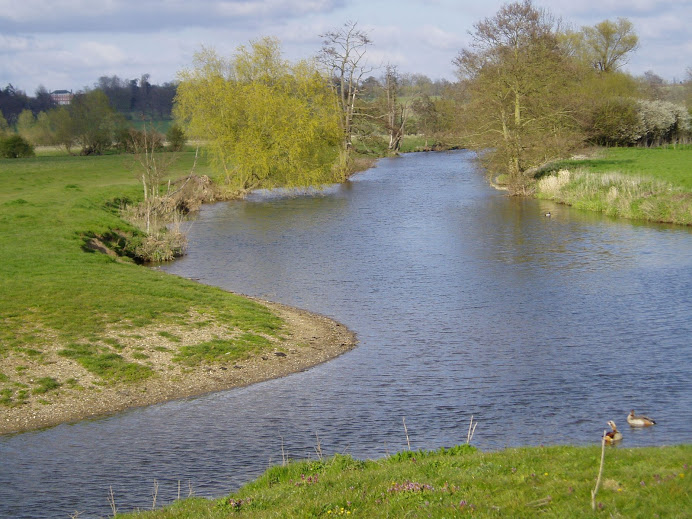And now I come to the matter, a very controversial one, of the Brethren Elder. I was told last year by a former leader at Emerson Park Chapel (EPC), that the Brethren had invented the Brethren Elder, who is not found in Scripture. If I understood him correctly, the Brethren Elder was created by men not God, and the Brethren Elder took on a life of his own that went way beyond Scripture. Doc Rowdon believed that the Brethren Elder could be a great blessing but also a curse. He told me that in some assemblies a Brethren Elder could bring mayhem and misery, especially those who loved "the sound of their own voices". Some Brethren Elders, it seems, gained an unhealthy control over people's lives, lorded it over the flock, and laid down rules and regulations that were burdensome. They were neo-pharisees.
My mother-in-law once told me that members of the assembly feared a visit by the Brethren Elders. Books would suddenly be hidden, and in some homes the radio was covered up or quickly removed to another room. It sounds like a visit by the Spanish Inquisition. And you never knew when they might turn up. (Yes, I'm thinking about the Monty Python sketches.)
There were some elders at EPH who seemed to me, when I was in my twenties in the 1970s, men with a sense of humour deficit who had a double dose of the 1950s but they never really enjoyed the 1960s. They never wore any denim, often dressed in suits, had no time for progressive music, had no knowledge of the cinema, and in my honest opinion took themselves far too seriously.
The usual response to the comment that they took themselves far too seriously would be, "well, I serve a very serious God." It is a response that the great Puritan scholar John Owen used.
So I regarded these elders as really square dudes, perhaps cubed, who were reactionary, and in some ways like the Pharisees and Sadducees of New Testament times. In their defence, it could be argued that they were reactionaries who rightly reacted against worldliness, the spirit of the age, secularism, modernism, liberal theology, sexual promiscuity, drug abuse, sexual deviance, adulterous relationships, perversion and many forms of ungodliness. They stood squarely behind Mary Whitehouse and the Nationwide Festival of Light. They did, however, fail to understand the Life of Brian, which was banned at the time of release in Southend, Essex. "Blessed are the cheesemakers."
One Brethren assembly, in the Hornchurch area (Bethany Chapel) I was told, insisted that all the elders should be married men. It was apparently established because these elders often had to handle sensitive cases and disciplinary issues involving intimate marital and family matters. Dr Harry Rowdon, a bachelor, would have found this totally unacceptable and unscriptural, against many Christian practices throughout church history. Was not our Lord Himself a single man? Were not some of the apostles single men? In some traditions celibacy is well regarded, sometimes as a higher calling. Hardline positions in some Brethren assemblies alienated them from the wider Christian family.
On the ecumenism or ecumenical matters, the Open Brethren were generally strongly against working with all denominations, especially those who did not embrace evangelical theology and what was considered to be "the faith once delivered to the saints." Roman Catholicism was opposed as holding to doctrines contrary to the plain teaching of the Bible and the Gospel message of salvation by grace through faith unto good works, but in no way by good works or by religious adherence to church traditions. Any church that did not have a very high view of Scripture, holding that the Bible is the truly reliable (most Brethren would say infallible) rule of faith, not tradition, would be regarded as unsound and in error. Therefore only links with like-minded evangelical fellowships were established. This, therefore, ruled out any membership of Churches Together, marches of witness with non-evangelical denominations, and evangelistic enterprises such as Alpha. I cannot remember any support for the Hornchurch Passion Play, which started in the 1990s.
In time, I would argue, the Open Brethren in Hornchurch and throughout Havering became rather isolationist and inward looking. They created a safe and secure haven for evangelicalism but somehow lost their cutting edge, social relevance and impact in the community. They became an irrelevance, to some extent, because they were not scratching where people were itching; they became staid, looking at life through the rear view window and completely failing to pass on their message and world view to the next generation. They were not retaining their young people at all. In studies of Brethren fellowships throughout the country, the Open Brethren has had very little impact, in terms of conversions and membership, with regard to young people and young adults in the 17 to 27 age group, even into those in their early thirties. This is, of course, now true of many, but certainly not all, Christian denominations and fellowships, and the problem has been identified as a crisis facing the church.
My mother-in-law once told me that members of the assembly feared a visit by the Brethren Elders. Books would suddenly be hidden, and in some homes the radio was covered up or quickly removed to another room. It sounds like a visit by the Spanish Inquisition. And you never knew when they might turn up. (Yes, I'm thinking about the Monty Python sketches.)
There were some elders at EPH who seemed to me, when I was in my twenties in the 1970s, men with a sense of humour deficit who had a double dose of the 1950s but they never really enjoyed the 1960s. They never wore any denim, often dressed in suits, had no time for progressive music, had no knowledge of the cinema, and in my honest opinion took themselves far too seriously.
The usual response to the comment that they took themselves far too seriously would be, "well, I serve a very serious God." It is a response that the great Puritan scholar John Owen used.
So I regarded these elders as really square dudes, perhaps cubed, who were reactionary, and in some ways like the Pharisees and Sadducees of New Testament times. In their defence, it could be argued that they were reactionaries who rightly reacted against worldliness, the spirit of the age, secularism, modernism, liberal theology, sexual promiscuity, drug abuse, sexual deviance, adulterous relationships, perversion and many forms of ungodliness. They stood squarely behind Mary Whitehouse and the Nationwide Festival of Light. They did, however, fail to understand the Life of Brian, which was banned at the time of release in Southend, Essex. "Blessed are the cheesemakers."
One Brethren assembly, in the Hornchurch area (Bethany Chapel) I was told, insisted that all the elders should be married men. It was apparently established because these elders often had to handle sensitive cases and disciplinary issues involving intimate marital and family matters. Dr Harry Rowdon, a bachelor, would have found this totally unacceptable and unscriptural, against many Christian practices throughout church history. Was not our Lord Himself a single man? Were not some of the apostles single men? In some traditions celibacy is well regarded, sometimes as a higher calling. Hardline positions in some Brethren assemblies alienated them from the wider Christian family.
On the ecumenism or ecumenical matters, the Open Brethren were generally strongly against working with all denominations, especially those who did not embrace evangelical theology and what was considered to be "the faith once delivered to the saints." Roman Catholicism was opposed as holding to doctrines contrary to the plain teaching of the Bible and the Gospel message of salvation by grace through faith unto good works, but in no way by good works or by religious adherence to church traditions. Any church that did not have a very high view of Scripture, holding that the Bible is the truly reliable (most Brethren would say infallible) rule of faith, not tradition, would be regarded as unsound and in error. Therefore only links with like-minded evangelical fellowships were established. This, therefore, ruled out any membership of Churches Together, marches of witness with non-evangelical denominations, and evangelistic enterprises such as Alpha. I cannot remember any support for the Hornchurch Passion Play, which started in the 1990s.
In time, I would argue, the Open Brethren in Hornchurch and throughout Havering became rather isolationist and inward looking. They created a safe and secure haven for evangelicalism but somehow lost their cutting edge, social relevance and impact in the community. They became an irrelevance, to some extent, because they were not scratching where people were itching; they became staid, looking at life through the rear view window and completely failing to pass on their message and world view to the next generation. They were not retaining their young people at all. In studies of Brethren fellowships throughout the country, the Open Brethren has had very little impact, in terms of conversions and membership, with regard to young people and young adults in the 17 to 27 age group, even into those in their early thirties. This is, of course, now true of many, but certainly not all, Christian denominations and fellowships, and the problem has been identified as a crisis facing the church.


































































































































No comments:
Post a Comment